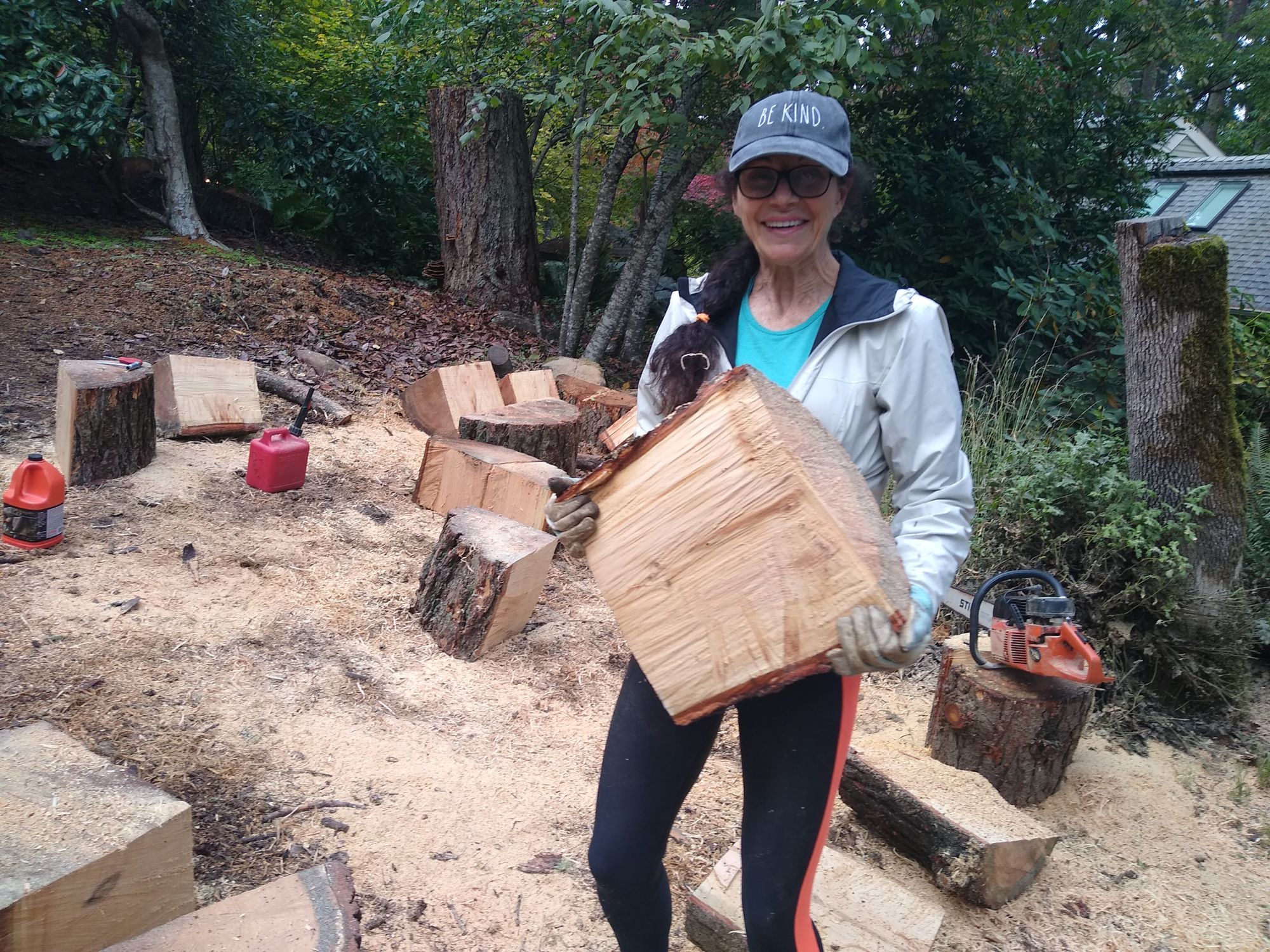
Ten days ago I had rotator cuff surgery. Already, I am ready for the gym. Here's how that works.
If you're older, single, living alone and facing surgery, this article is for you. I am all of that. While I had offers from helpers, I wanted to see how much of my post surgical care I could make easier by proper preparation, both physical and environmental. This surgery would leave me a wing down for weeks for most activities, but my belief was that good prep would go a long way towards not only a good recovery but also accident minimization.
If you've ever had this shoulder surgery, you can attest to how painful it is. Even the doctors who have had it will admit it's brutal, largely because it's such a complex joint and there are some very important nerves coursing through those spaces. My first was in May of 2018, after multiple injuries, a horse stepping on the damned thing and 45 years of body building finally took its toll.
That was a horror show for many reasons. I took what I learned that year and made a completely different plan for this years' surgery. As soon as I knew that the VA was going to spring for my shoulder, I sought surgeons. I fired the first one because he was an arrogant ass, which was what happened the first time. I learned a long, long time ago that if your instinct says this doc is not a good fit, fire them.
Not being able to trust, laugh with and have a solid connection to your doc doesn't bode well for the surgery or for the recovery. This gets even more important as we grey. Medical IQs seem to drop in direct proportion to the rise in the age of those they treat. As in, older women. So, shop accordingly.
My "shopping" was aided by a terrific VA surgeon who referred me to a particular local doc he trusted.
While doing so pushed my surgery to November, the man I selected (there are very few women who do this kind of work and none close to me here in Oregon) turned out to be a perfect fit. He got where I was coming from immediately and from there on it was a breeze. He was fun, funny, and so well-loved up here that the waiting list is long. That said a lot to me. I got in line.
The day I got the date, I started training for the surgery. That meant that as the last cortisone shot in my shoulder wore off and it began to hurt a great deal more, I still pushed myself to work out to strengthen the muscles. I did all kinds of rotator cuff exercises.
My bicep tendon was badly frayed; that would be cut. That hurt like a mofo too. Ask any quarterback or pitcher what a fraying bicep tendon is like. They'll tell you. It's miserable.
But still I worked out. My fitness trainer and I designed a series of exercises I could do one-handed to work back muscles using strong bands at home, and on machines at the gym. My downstairs gym was kitted out with light weights, a bench and a long rod for both PT and bench squats, to help me balance with one arm in a sling.
What was particularly essential was core strength. After all, in getting up from the couch or out of bed, my belly and oblique muscles had to do most of the work since I wouldn't be using my left arm at all. If I lost my balance and reached out with that damaged left wing, I could not only cause extreme pain but also rip stitches. So, ab work. Lots of it. Lots and LOTS of it.
I wanted to be able to count on my body to get me where I needed to go safely in my house.
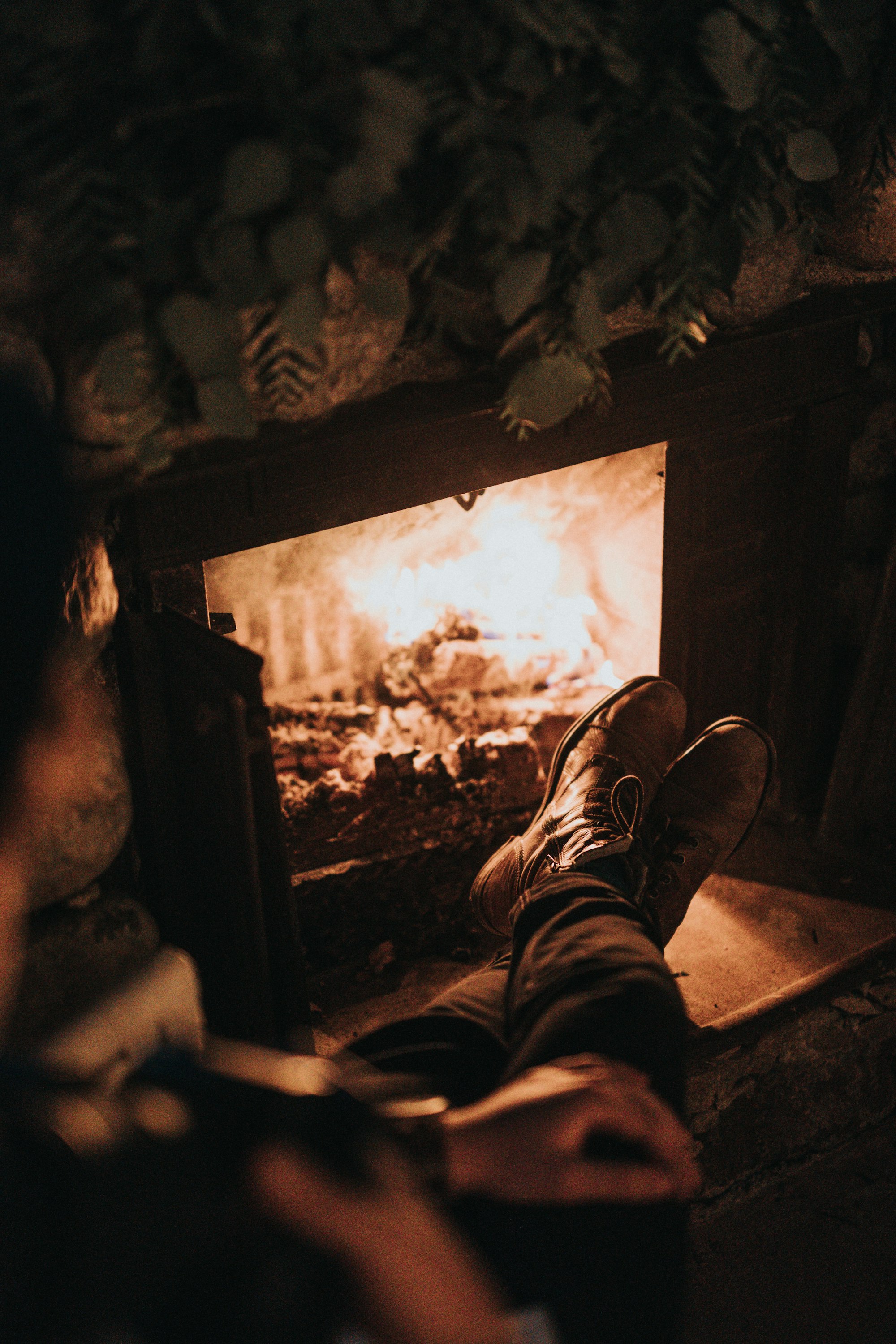
Readying the home for recovery
My fireplace is healing for me, so, the issue of wood. My woodpile is up a small hill from my kitchen, and I have to maneuver six stone steps which get slick from rain and mold in winter. I practiced: loading and carrying my log carrier one-handed, getting in and out of my mud boots which sit on the steps next to the glass door. After a while it was a breeze. I also practiced loading and stacking heavy pieces of wood with my right hand, and learning how to get them into my insert.
When your core is strong and you do one-armed fireman carries, taking a fat load of heavy wood one-handed down slick stairs gets easy.
I also loaded up on those Duraflame fake logs which are quick to light, and stay merry for about four hours. Boxes of them, which I pre-opened to save me the trouble.
Then I loaded eight logs next to the fireplace, along with lots of fresh kindling, fire starter and matches.
Since I live in Oregon, my pebbled driveway (and many of the sidewalks) gets lathered with bright green moss when the rains start. That moss, combined with rain and cold temps, turns slicker than black ice. So I hired my landscaper to pressure wash all the surfaces clear of the moss, which ensured better footing.
Other things to check: are your rails inside and outside steady and dependable? Are other stairs slick? Are there places on the floor or carpet which could cause trouble for you? Fix them now.
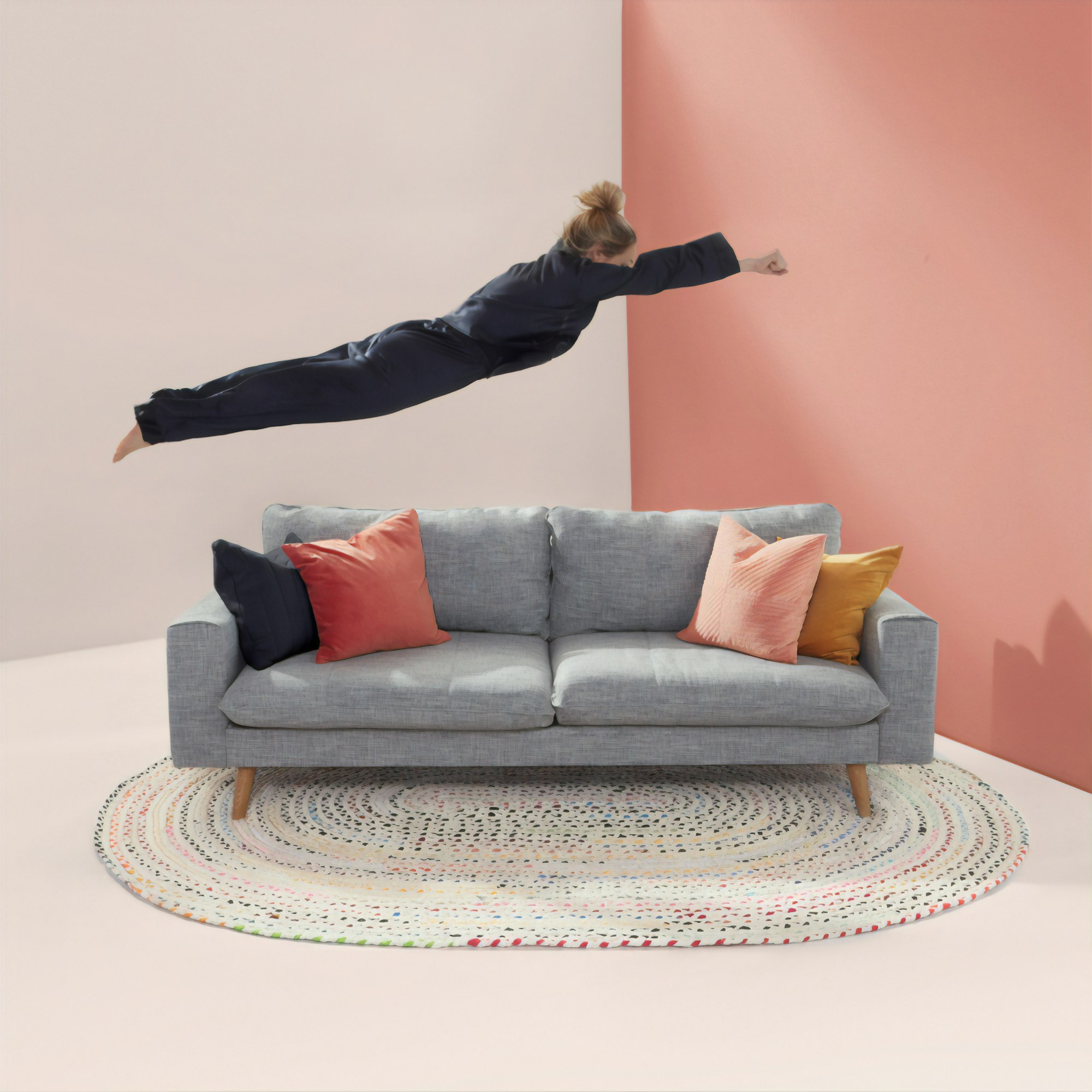
As the date got closer, I set the house up: I'd be sleeping on the couch, so I moved anything and everything that I could trip on out of reach. I put a wood dowel under the coffee table to grab in case I had to head down the hall at night. If you've ever had to pee and your pea brain is full of anesthesia and pain meds, you get my drift.
Nobody would be staying with me that first night, so if I did a header down the stairs, I'd be staying there for a week.
A few days prior I made sure that I had food that I could heat up and eat without my left arm. My neighbor, a retired nurse, had given me her number. My phone was set up and plugged in, with my laptop and on the floor next to the couch but not where I could trip on them.
And speaking of food, anyone who has ever had pain killers will tell you that they slow down the mail delivery, if you will. I eat a lot of fiber, but one of the headache meds I take tends to slow the mail delivery as well. So I take psyllium every night. That's the only supplement I continued to take up to the night of surgery because being constipated is miserable. Psyllium is natural, it works. Did work.
I had movies ready to go; my social media buddy JC would be spending the first weekend after surgery with me setting up my tech so that it would be effortless.
So I thought.
Make it easy and safe to get around at night
All the necessary meds were within an easy reach, along with water for taking meds. The house was well-lit with gentle Christmas lights which stayed on. I had an eye mask that I could pull down one-handed when I wanted to get up and move around without having to find the light switch.
The actual surgery was a breeze. I recall nothing at all about being brought home, put onto the couch or much of anything else. My real estate agent, who has become a friend, did that for me. No wonder I send her business. She called the next day to make sure I was all right, and my neighbor was at my kitchen sliding door by ten the next morning.
Blessedly, my surgeon had given me a 24-hour nerve block. It wasn't until midday that I could move my fingers, and by that time I'd had a full night's rest. I'd ordered a small supply of Ambien to make sure that I got at least six hours of sleep even with pain. They worked, too, for the first nights that the grogginess of anesthesia didn't help me drift off, and my offended shoulder had conversations with me in Icelandic.
As in, WTF?
And speaking of ice, that helped. I had ice packs which were easy to freeze and load one-handed. However, I'd bought a five-pound bag of frozen peas for the same purpose just in case.
And, for those with pets:
Finally, if you have fur babies, their over concern about your pain and health may well lead them to get underfoot and curl around your ankles. While you may want them around you, make sure that you have a way to get them out of the way- including with friends- while your walking may be wobbly. They can help you heal, most surely. But they can cause you to keel over by getting tangled up under your toes. Love them enough to get them out of harm's way long enough to steady yourself, or train them to stay DOWN while you're moving. My favorite word for this is
CRASH.
For my dogs, that mean DOWN, RIGHT NOW, NO ARGUMENT, TIL I SAY GET UP.
Works, too. Train them before their love for you trips you.

So how did all that work?
Better than I could possibly have imagined. And some things fell through. JC, my social media guy, had a car breakdown. By the time all was said and done, he was only able to spend one day with me, and that day was the day after surgery. We'd had plans to work on this, that and the other. Instead, he worked on my tech and I snored the day away. By the time he headed back to Portland, I had Netflix on my big screen, my home signal was boosted, and I actually had several bars on my phone.
Forest life. You deal.
I did use the dowel the first and second nights. When I woke up about 1 am and stood, the dowel kept me from toppling over.
Because the easiest post-op exercises, like hand and wrist movements could be done on the couch, having that squeeze ball on the coffee table made that very easy.
The single biggest takeaway
However, what was vastly more helpful than anything was the core training. Every single time I moved, whether to shift positions or to get off the couch, I used my belly muscles to do most of the heavy lifting. That protected my left arm, and stabilized all my movements.
I used my core muscles while carrying wood, balancing on one leg to pull off my mud boots using the concrete step. Every single thing I did used my core far more than I might have realized.
A week after surgery, I moved back to my bed, which is quite a few feet off the ground. I set up pillows to bolster my arm, left soft lights on just case. While the physical therapy is angering my left wing, sleeping was better.
However, again, there's this: pulling myself upright in that big down bed and turn to my left to locate the steps is ALL CORE.
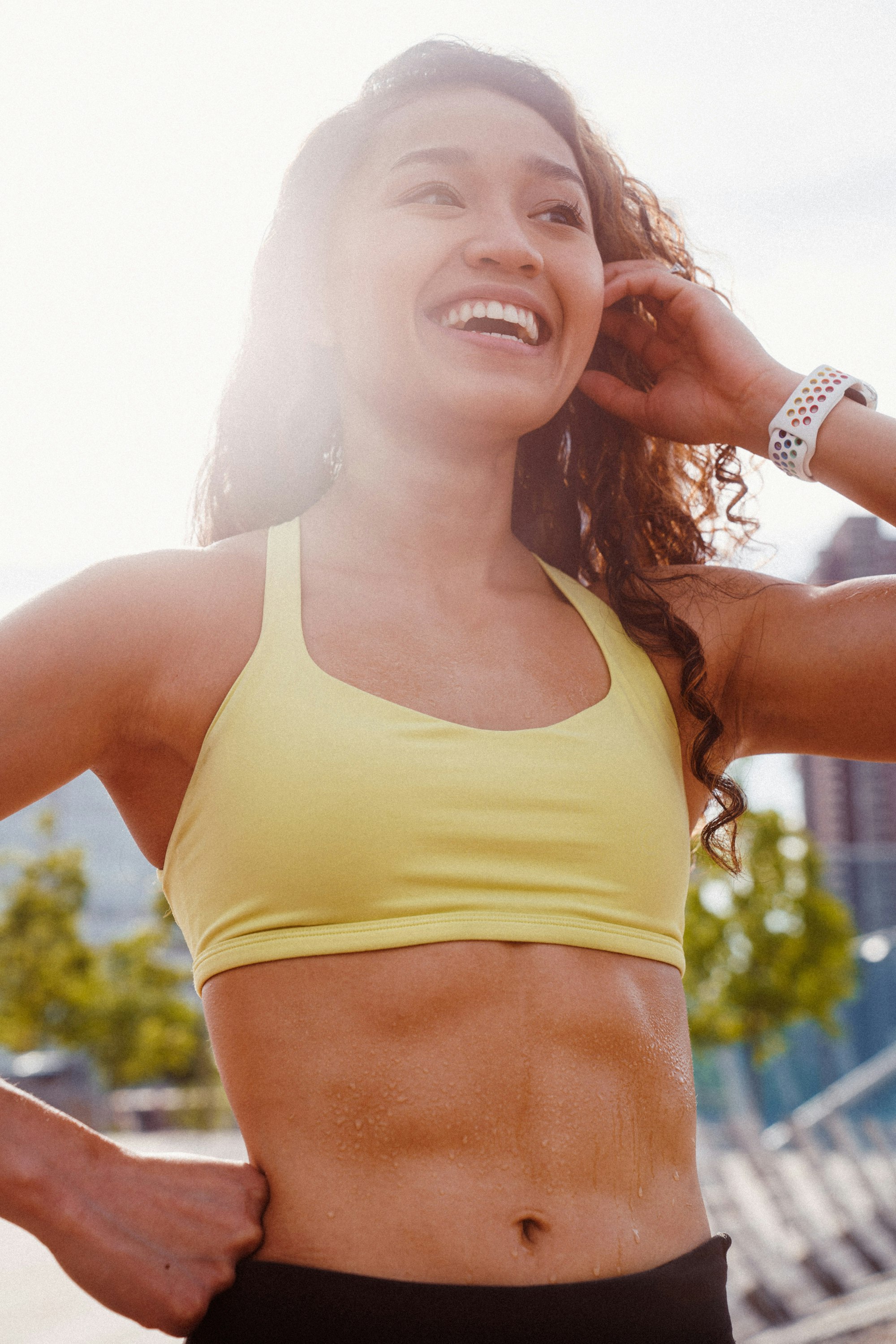
There is absolutely nothing so deeply marvelous and satisfying as being able to trust your body to do the work necessary not only to get you about your daily business, but to do the yeoman's work when a body part is down.
Why I did this
Today's hospitals, driven far too much by legal and accounting concerns, are quick to boot you and me out the door to free up a bed so that they can make a profit off the next patient. That may or may not be good client care. Don't get me started. Since that is who we are as a nation, the way I see it, the better prepared you and I are when we are swiftly wheeled out so that someone else can get wheeled in, the better.
Said "care" system also makes the damned foolish and very wrong assumption that most of us have family (wrong) and ALL of us have someone who can spend the night (REALLY SPARKY?) It isn't just that this is a seriously skewed Beaver Cleaver assumption about modern life, it's brutally unkind to aging folks for whom their families are scattered to the winds or dead, or their life circumstances didn't bequeath them with caregivers. Here, legal concerns also dictate that many organizations are hamstrung in offering that care. Good old America, where lawyers trump humanity every single time.
That said, I had help for all but the monumentally asinine demand that someone spend the night with me. Since I can't create family out of the ether, I took self-care seriously and made sure that the likelihood of mishaps was vastly reduced by training pre-surgery and setting the house up for post-surgery.
I started PT the day after surgery. I was also on my oxygenation machine the day after surgery, using my elliptical to push pure O2 into my cells. That's a significant investment, by the way, but for me it was originally for my concussions. Now, it's not only for that but for training, and for recovery.
By the time I made my first formal PT appointment, I had already completed a considerable amount of work to get my arms, fingers, wrist moving smoothly again. That's because I had downloaded the exercises beforehand. And, I had a squeeze ball that I was using to strengthen my hand and get my fingers moving, and was using it while watching movies.
Steve, my PT, is concerned I might push too hard too fast. Truth is that it's tempting but that's just stupid. I have already reached the outer limits of range of motion that he wanted me to get to at the end of six weeks and I'm only ten days out.
It has little to do with your age and everything to do with your health
None of this is bragging. This is about sharing what worked for me. As I get ready to ramp up more gym work, I am already back out hiking three miles every day. An active body is a fast-healing body.
Older people DO NOT HEAL SLOWLY because they are old.
Older people heal slowly because of sarcopenia, reduced lung capacity from sedentary habits, crap eating habits and the deadly lifestyle illnesses such choices cause.
Lifestyle illnesses set us up for poor results after surgery. While I bang this drum all the time, bottom line for me is that results speak for themselves. Nothing about this is luck. It's about choices that pay off.
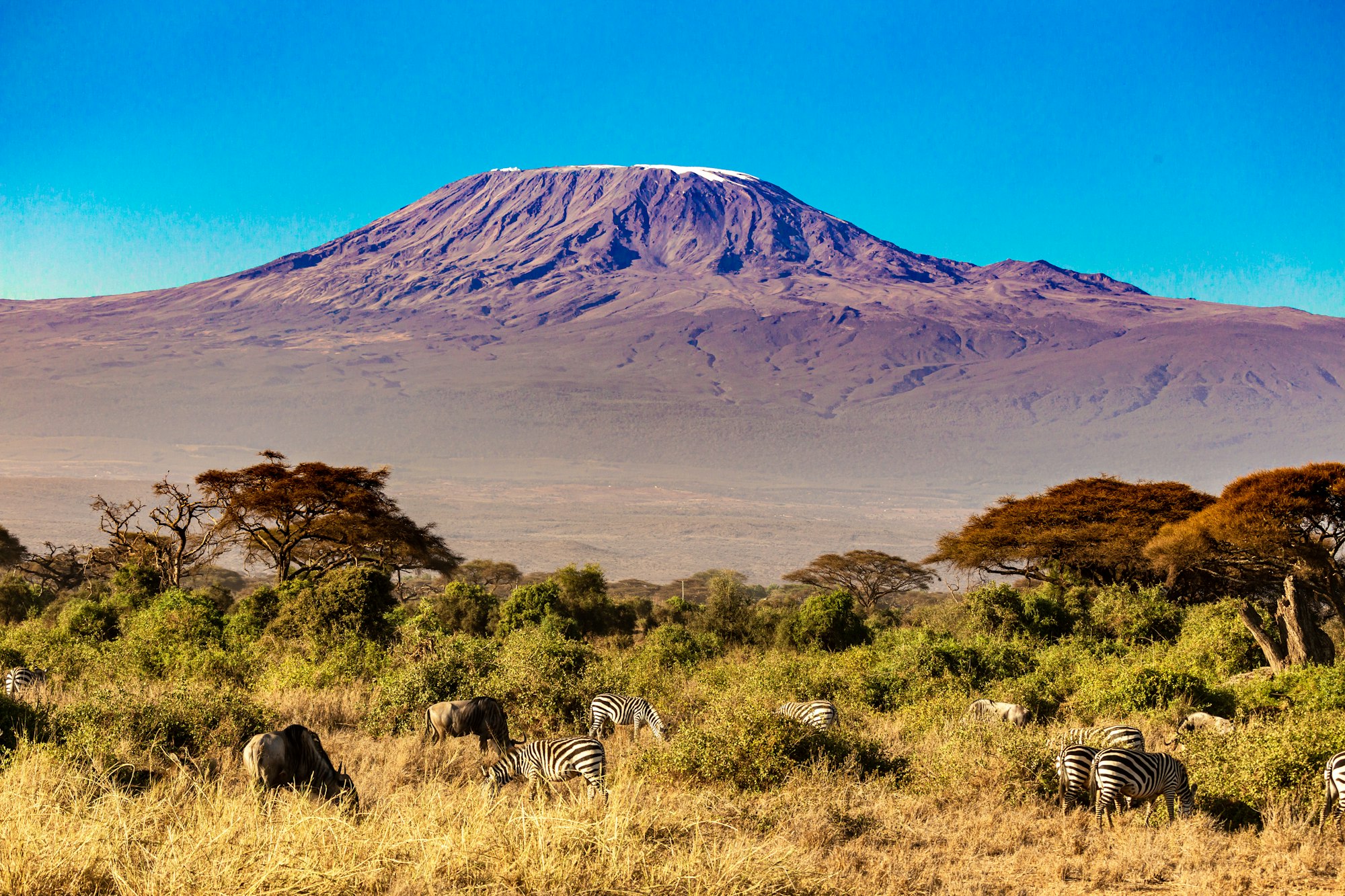
Finally, on October 30th I committed to hiking Kilimanjaro the second time in two years, at seventy. That over-arching goal provided the backdrop against which I would enter this surgery. The sooner I got back to training, the faster I'd be hiking harder hikes, running longer distances, and cross-training. That works for me. It isn't for everyone, but having a larger goal to put a short-term procedure into context is part of what heals us faster.
Your big motivation might be to re-engage with the grandkids in a game of backyard football. Run your first race. Does it really matter? Hell, no.
What matters is to take your health care seriously.
I regularly get roasted for being so "lucky" and it has to be my magical "genes" that I'm in this kind of shape. Kindly, it's a combination of decades and decades of hard work, discipline, practice and patience. Anyone can change their health by making better choices at any time. Anyone can, unless you're on your death bed and riddled with tubes.
As you and I age, we are going to be hit with life's bowling balls. Some we can't anticipate. What we can do is train. By that I mean eat well, move much, develop friendships. I'm working hard on this last part as I am still new to Oregon and I moved here under quarantine. Mingling has been strongly frowned upon, so my circle is still very small. That won't last forever.
Because I take real physical risks, I expect to get injured. A strong, healthy body is THE single best Rx for whatever comes our way. I have hand surgeries coming up next year, same surgeon. I expect them to go well. I will train for them, too. Already am, by using those squeezy-hand strengtheners, but most of all doing full-body strength training. By the way, hand strength and grip are prime indicators of late-in-life health. Don't believe me? See:
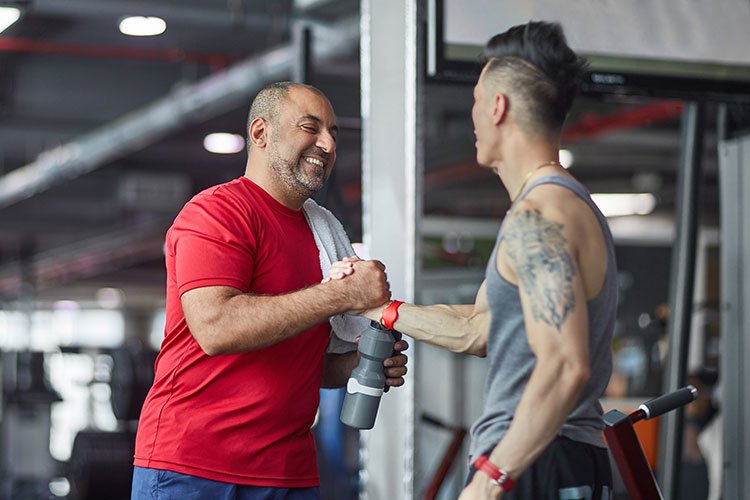
We all get old, if we're lucky. But we don't have to get decrepit and weak. That part is up to us. It takes work, and caring for ourselves enough to realize that good food, regular movement, friendships and purpose are kindnesses. They aren't burdens. They are gifts.
So is the gift of life. How well we live it is up to us. Now I gotta get to the gym.
Comments powered by Talkyard.